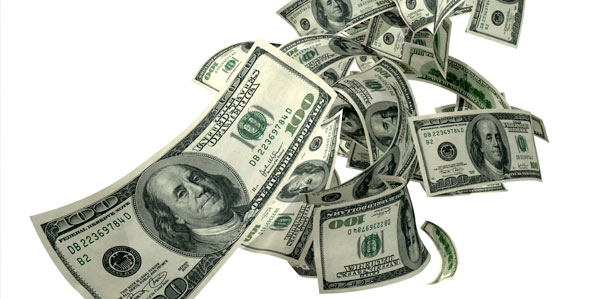Costing Out A Record: Part I
Maybe you think you have what it takes to be a record producer? You love music and are convinced that you’ve got the musical ear and talent necessary to create an album of great sounding, potential hits. And you’ve identified a new artist or band that you think is going to the top of the charts. What do you need to know? What is it going to cost? Who’s going to pay for the production and the subsequent manufacturing and promotion? Welcome to the record business.
I mentioned that I would peel back the curtain on the financial breakdown of a recording a few days ago (click here to see the previous article). I think it would be helpful to know what goes into the cost of producing a record. Who’s getting what pieces of the pie?
The funding and production of a new album has changed in the past 30 years. I recall Don Was, the new head of Blue Note Records, lamenting the changing dynamics of the record business at his label during a speech at the NAMM show. It used to be that an artist and his or her producer could get around $50-75K to produce a new CD. The label would put up the money and count on sales of 75,000 or so (for a top jazz artist) and make a reasonable profit. These days that same artist is selling 7500 copies and the money for production isn’t recouped. Can a great record be made for $7500? No.
There are a lot of phases to creating, releasing and promoting a successful record. One of the first items that starts sucking down dollars is the production of the album…the recording of the music.
I spend about $20-35K on each of my albums. I’m the record label so it’s my money that’s on the line when I schedule a series of sessions and projects. There’s money to be spent on musicians, the technical staff, support personnel, venue rental, equipment rentals, media, food, transportation and outside contractors…lots of outside contractors. Of course, my productions include the shooting of high-definition video as well as capturing audio so there are a lot of additional costs that a normal record label doesn’t incur. I have to pay for a lighting company, sets, hair and makeup people, cameras, a jib or crane and operator, video engineering, rent dolly tracks, curtains, flowers, carpets etc. It’s a very challenging enterprise…and it all costs money.
The cost of just getting the raw audio and video recorded comes to about $25k give or take. I’m very fortunate because I happen to own all of the required hardware and software required to edit, mix, color correct, author, tag, QC, and master the audio and the video. I do this in my facility. And I have the experience and expertise to do all of the associated steps needed to bring a project from start to finish. If an artist or record company wanted to hire AIX Media Group to produce a recording, all of the steps that I get to do without having to pay someone else would add another $25K to $50K to the total cost. These are called the hard costs…dollars that are actually spent on talent and creative services and which must be recouped from sales before an album turns a profit. And before there are any royalties paid to artists.
To be continued…


I think that Mark has the only? possible alternative o recording music nowadays. Traditional studios, that just record mix etc are financially in dire straits these days. Surround recordings and mixes are one way forward, but need the collaboration of the big HW companies to come out with affordable, minimum quality listening solutions.
Sony is too busy trying to revive the braindead DSD format. Let us see what Apple comes up with…
Z.
So here’s some disturbing news – Best Buy Canada no longer carries CDs or music videos! All their stock has apparently been shipped back to head office. So Best Buy has a music room where they’re selling guitars, drums, etc and encouraging people to make music. But if you make a CD, they won’t sell it for you! What an irony!
I don’t know what’s going to happen now – is everything going strictly digital? What are your thoughts?
This is amazing news. I know there are still CDs, DVDs, and Blu-ray titles on the shelves of my local Best Buy. But I don’t think physical media for mass market sales of music is going to grow. Music doesn’t need a physical disc…but audiophiles will most likely support discs for a while.
Greetings and many thanks,
I have always wondered about the production of an album. I will enjoy your further discussions on this topic.
Also, could you please include how vintage recordings are acquired ( Master Tapes) and the business of selling them in a re-mastered format ?How long does the artist have rights to their music?
Stay tuned. The copyright to a master recording can last for many decades if renewed properly.